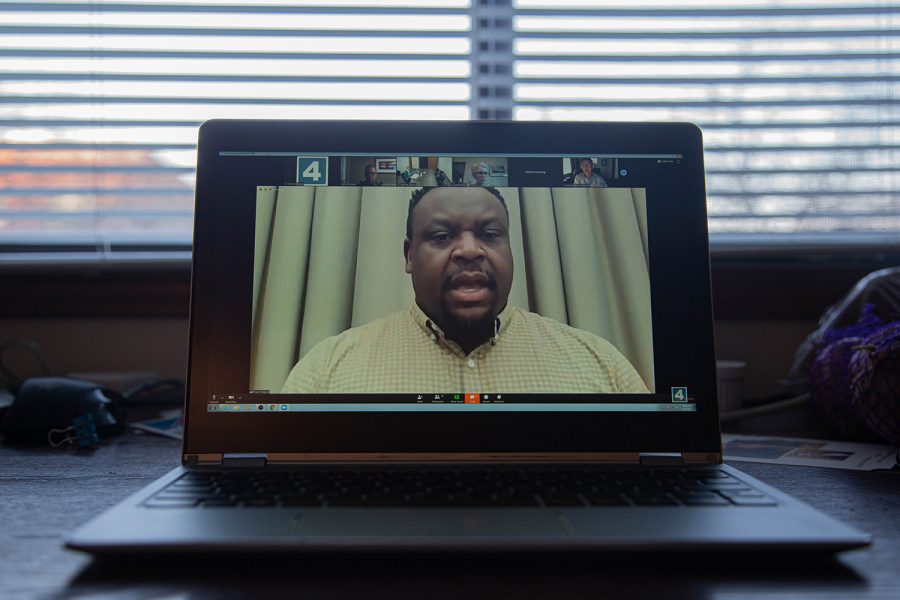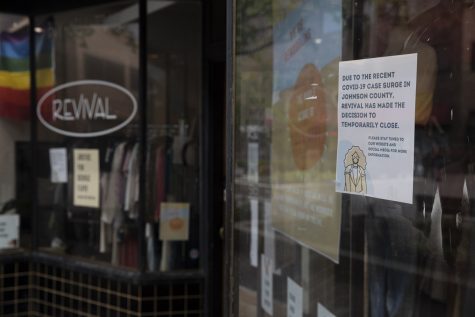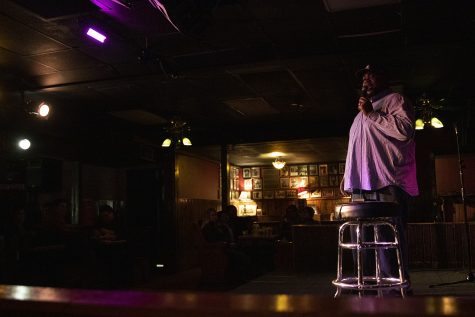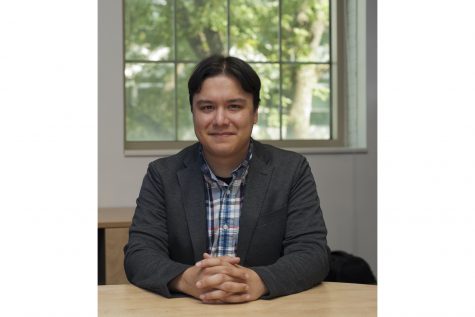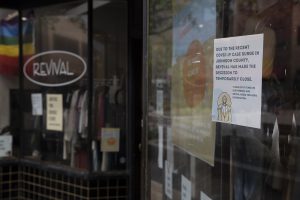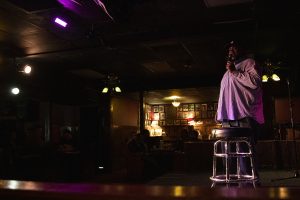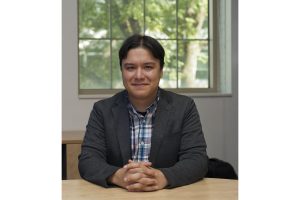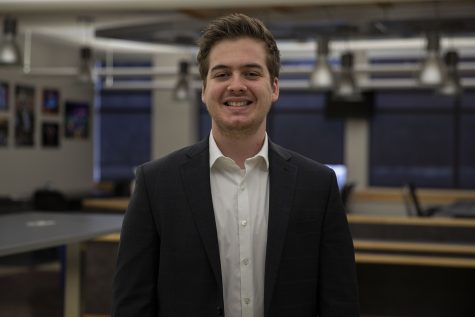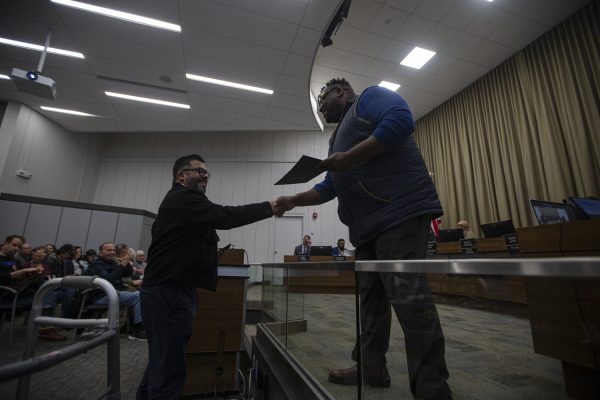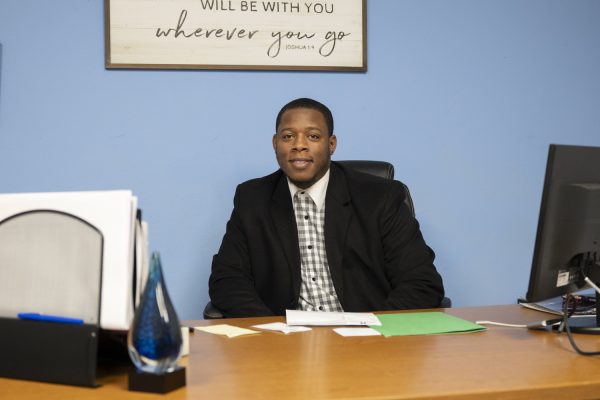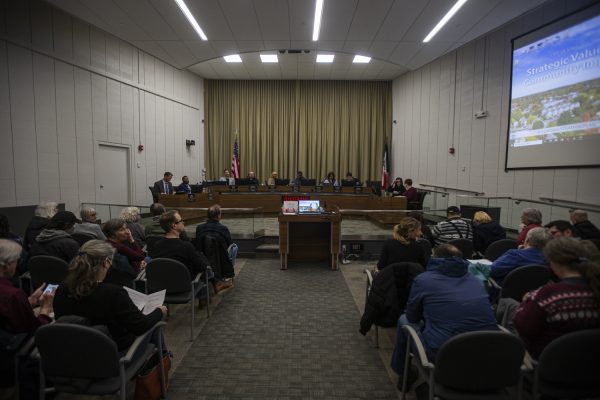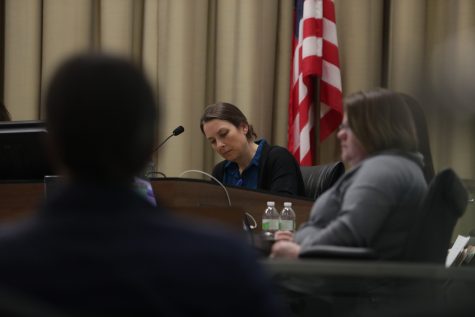Iowa City City Council moves to establish truth and reconciliation commission
City Council discussed the next steps in addressing the Iowa Freedom Riders’ demands in a work session Tuesday.
Mayor Bruce Teague speaks at a city council meeting over Zoom on Tuesday, April 7, 2020. Items included the possible building of solar panels in Waterworks Prairie Park and the COVID-19 City Employee Pay Plan.
June 30, 2020
The Iowa City City Council took the first steps toward establishing a truth and reconciliation commission Tuesday to address past and current injustices highlighted by Black Lives Matter protesters in Iowa City.
The council offered few details regarding what the commission will look like, but it plans to have a draft of a resolution to create the commission for its July 21 meeting, allowing the public to provide input on the commission.
The council also designated two members — Laura Bergus and Janice Weiner — to act as liaisons with the Iowa Freedom Riders, a group that organized weeks of protests in Iowa City throughout June and was foundational in pushing for a 17-point resolution passed by the council on June 16.
The resolution committed to 17 actions over the next several months in response to the Freedom Riders’ demands, including a plan to restructure the police department, creating the truth and reconciliation commission, attempting changes to the Community Police Review Board, making Juneteenth a city holiday, and more.
In a special work session held Tuesday afternoon, councilors discussed the resolution and divided the points into categories which will be addressed by specific commissions.
The council settled on four categories to sort the points into, which were taken from a letter to council from the Freedom Riders. According to the letter, the group is already establishing working groups focused on the following areas:
- Address policing and the future of public safety
- Diversity, equity, and inclusion
- Housing
- Truth and reconciliation
The letter from the Freedom Riders states that the group wants a permanent seat at the table for City Council’s discussions of the demands, and it also requests that other members of the Black community be involved in the process.
In addition to the truth and reconciliation commission, the council said they would create time for public comment to discuss creating groups addressing the other categories in the July 21 meeting. They also asked that staff complete a report on actions taken toward the June 16 resolution for their July 8 meeting.
Councilors said they wanted the Freedom Riders to be a principal actor in the groups, but they also want other Black community organizations and the wider Iowa City community to be involved in the process.
“They have been very influential in getting council to move on these demands … We can certainly reserve spots for Iowa Freedom Riders but also any of those groups that we know have been in the community that have been about social justice, such as the Black Voice Project,” Teague said.
While the council discussed what role the Freedom Riders would play in the commissions, several commenters in the Facebook livestream expressed frustration that the group was not present at the meeting.
“These are demands they voted on and are still trying to figure out [what] they mean,” UI student Ala Mohamed said in a comment. “This is beyond upsetting. They don’t even have IFR at the table.”
Councilors also labored over how to solicit input from the stakeholders as they work to create commissions to address the resolution. Councilor Mazahir Salih said since the Freedom Riders are already working on the other categories, like housing, they can bring recommendations to the council while the council establishes the truth and reconciliation committee.
Councilor Laura Bergus said the council needs a forum outside the formal meetings where community members can offer input.
“I would like us to try and make some pathways for that or some tools for that so that we’re gathering input in a consistent way, so that we can categorize it and use it and track it and respond to it,” she said.



